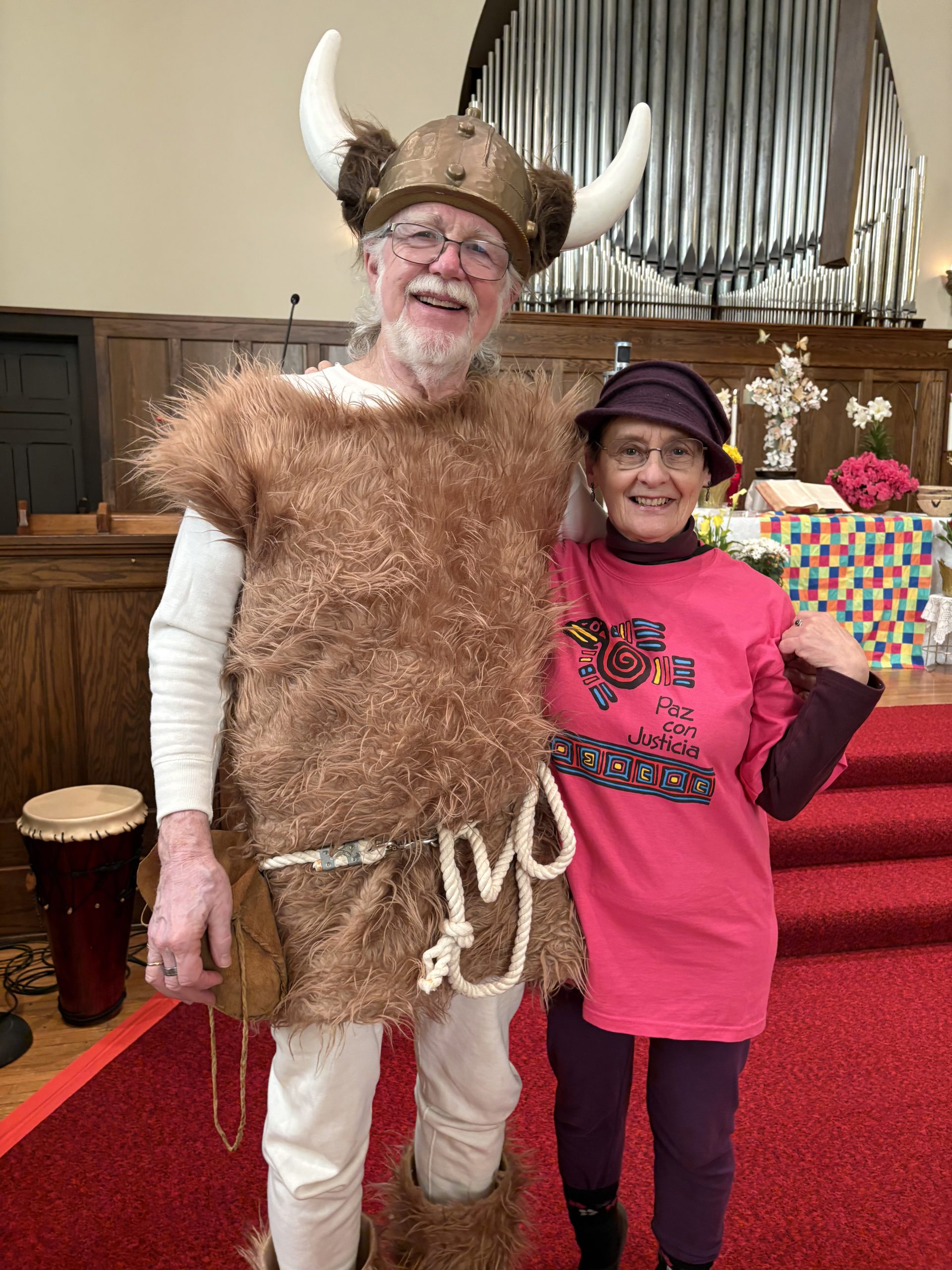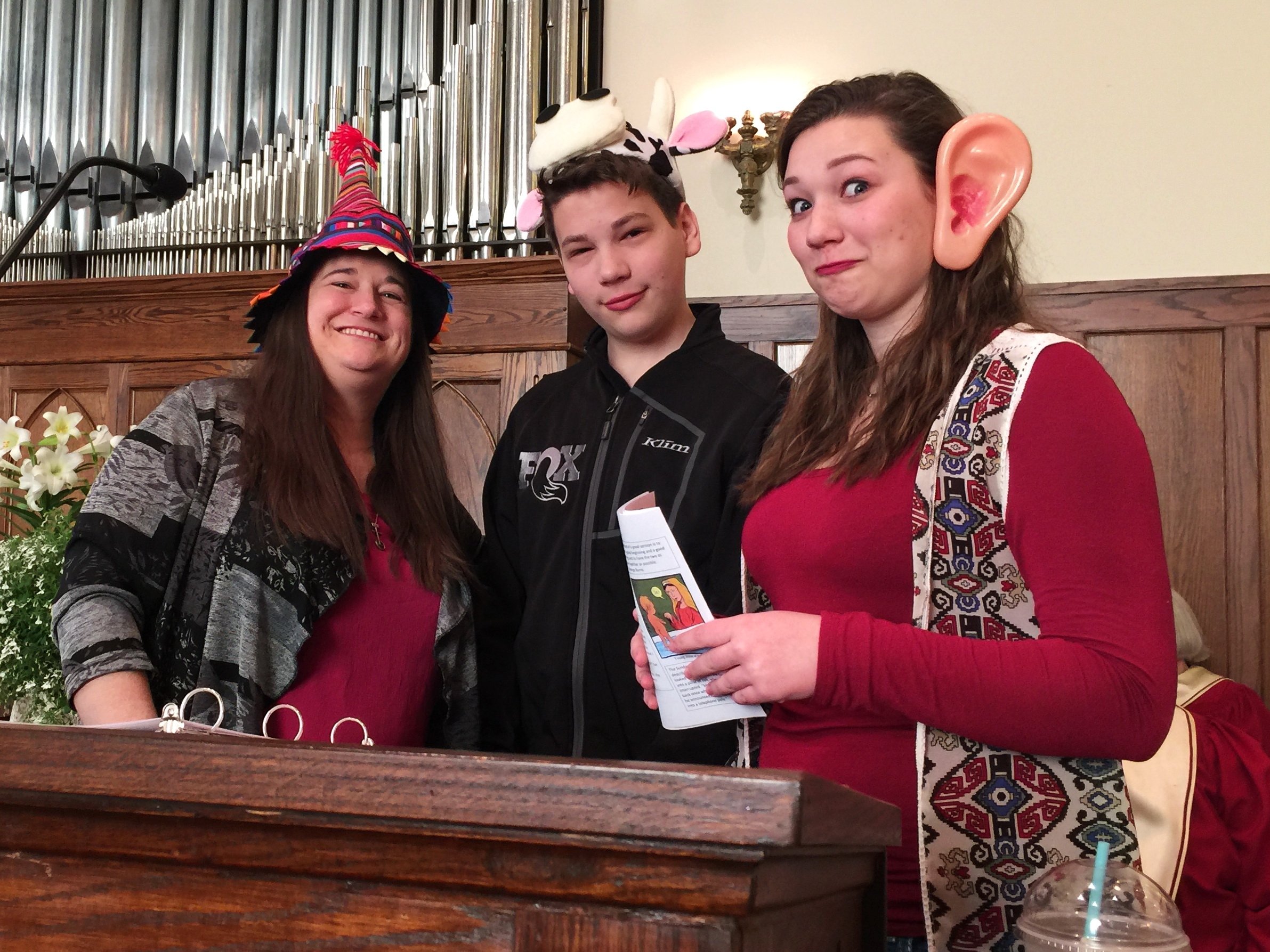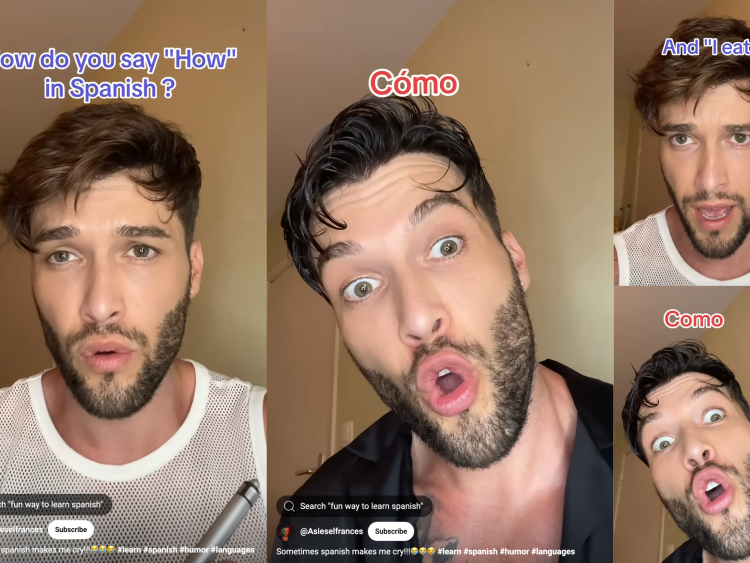Double your Pleasure, Double your Fun
People of a certain age will be able to finish these phrases and likely be able to sing the jingle. This might bring a smile from childhood days or a blank look, depending on one’s generation and culture. Not everyone in the world chews Doublemint, Doublemint, Doublemint gum.
For today, I’m taking the commercial away from gum and using it to reference bilingual – bicultural humor. As we grow older, laughter works its way out of our lives. There are studies citing the decline as one ages. What happened to my unguarded giggle? Where did my chuckles go? When did I last let out a full-blown belly laugh? How can we reintroduce this healing elixir into our daily lives?
After watching a few Facebook Reels in Spanish, I sensed a void in my life. . . a double void, as I am missing out on bilingual-bicultural humor! While some laughs came from word plays and others came from cultural faux pas or insider winking, there are still universal situations recognizable by all.
One Spanish/ Spain clip showed two middle-aged women, one wrapped in a large coat coming to speak with her friend seated on a chair.
1st woman: “What did the doctor say to you?”
2nd woman: “If I want to appear on the beach with an incredible looking body (cuerpazo), I will have to go on a strict diet; absolutely no alcohol; do at least one hour of exercise a day; and sign up at the gym.
1st woman: That’s normal. What are you going to do?”
2nd woman: Well (Pues). . . not go to the beach!”
This is at the cross-cultures smile level. Seeing the women and hearing their accents brings it to another dimension of region, age and social class.
Some vocabulary, on the other hand, requires cultural insights. If there is a grandmother and a chancla involved, Latinos understand the famous flip flop/ Grandma connection without explanation. This usually involves a chase and a swat over the head or rear areas of the body. In the movie, COCO, little Miguel’s chancla wielding abuela is an “insider” joke, recognizable within the Latino culture. This is how it works:
A Facebook Reel shows a woman on her phone trying to rid herself of another cultural belief: The Mal de Ojo. It is believed that people can put a curse on you, a Mal de Ojo or Maldición. Perhaps a curandera, healing woman or other savvy in the ways of magic, can cure you. In this clip, we only hear one side as the woman describes her plight and waits for the person on the other end to share the cure. As not all of you are on Facebook, I transcribe it here:
“Hola, Buenas tardes. Veo por el internet que usted quita el mal de ojo y las maldiciones. – ¿Qué hago? ¿Qué tengo que repetir las palabras exactas cuando me echaron la maldicion? ¿Cómo olvidarlas? – – – Yo les declaro marido y mujer.”
Translation: “Hello, Good afternoon. I see in the internet that you remove the Evil Eye and curses. What do I do? I have to repeat the exact words used when they put the curse on me? How could I forget them? – – – I pronounce you husband and wife.”
This translation covers words, but lacks the cultural implications of curses and cures. This is very serious business. Look up: Mal de Ojo and the Egg cure. I’ve seen it work on colic.
Trying to translate word plays don’t work well, if at all. Puns have their own problems. Double meanings are slippery when translating but languages have their own collections. These examples require extra levels.
“Before was was was, was was is.” Or, “Time flies like an arrow. Fruit flies like a banana.” Or, “When does a dad joke become a dad joke? – When it becomes apparent.”
Some are country specific, like these terms and meanings in CUBA:
Why do they call their buses (guaguas), aspirin?
Because you take one every four hours.
(¿La aspirina? Una cada cuatro horas.)
Why do they call beef steaks, Jesu Cristos?
Because they talk about him (them), but have never seen him (one).
(De Jesu Cristo, le habla de él, pero nunca lo ha visto)
Why do they call their refrigerators coconuts?
Because when you open one, it only contains water.
(Nevera – El Coco, porque adentro no hay más que agua)
Which Spanish word to choose when talking about jokes!!
Back to Jesus. I’m betting you aren’t familiar with HUMOR SUNDAY, the Sunday after Easter. I didn’t know about it until we got a new pastor who knew stuff. She advised us that the Sunday after Easter was celebrated with joy and laughter, after all, Christ had risen and the joke was on Death and the devil. With that, she slowly introduced the idea through funny hats, then message t-shirts, doing the Order of Service in reverse and adding songs accompanied by drums, llama toenails and kazoos. We’re into our second decade of dressing up, laughing at cartoons about Jonah, Peter, Jesus and GOD.








Sacrilege? I prefer to think that people 2000 years ago had a sense of humor. I like imagining Jesus with a wit and his disciples occasionally winking.
(We will finish with the choir performing Beethoven’s Ode to Joy, on kazoos.)
Is there something you sometimes say that might be hard to translate? Please share below!



Wow, lots of fun in this one ! I am SOOOO glad I know-more or less-the English language as I would never be able to learn it.
And your new pastor sounds FUN ! Thoroughly enjoyed the kazoo concert and outfits ! I do need humor lately, thank you, which is why I listen/ read The Borowitz Report. He keeps it coming and I have laughed out loud much !
I can not think of anything right now that I say that is hard to translate, but there must be some because I have often been met with a quizzical “ Huh? “ look after a remark. It’s all good !
thanks !